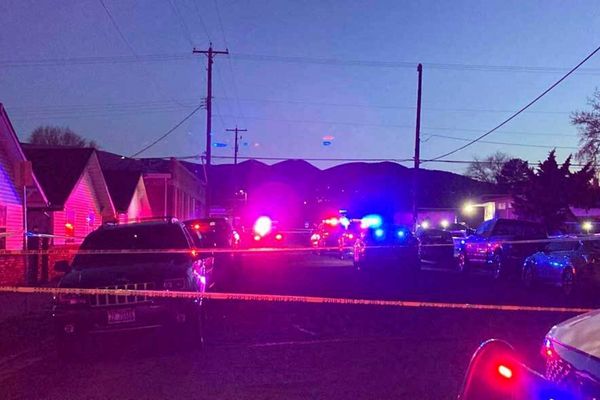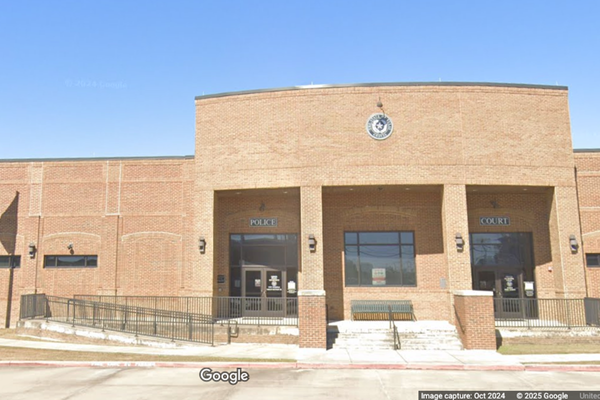FORT LAUDERDALE, Fla. — Gov. Ron DeSantis’ multifaceted reshaping of education in Florida is accelerating, with implications that could last for generations.
When he’s finished, the cumulative effect of his effort to imbue conservative practices and philosophy from the first day of kindergarten through college graduation will be felt long after he’s done as governor — and long after he leaves the presidency, if he makes it that far.
“It is almost like he’s trying to change the mission statement of what our educational institutions are,” said Broward County Commissioner Beam Furr, who was a middle school social studies teacher for 10 years and a high school librarian for 15 years. “I’ve always seen them as places where you really go simply to learn. He’s actually trying to turn them into, I’m not sure exactly what.”
Furr, a Democrat who isn’t known for tossing verbal grenades or partisan attacks, is deeply concerned about the direction of Florida’s education system. “I’m afraid that this road he’s taking is not forward, but backward,” adding it is leading to “the dismantling of the public education system.”
Added state Rep. Patricia Williams of Pompano Beach, the top Democrat on the House Education & Employment Committee: “I feel we’re going backwards.”
Sid Dinerstein is as ecstatic about the DeSantis approach to education as Furr and Williams are concerned.
“He is just wrapping his arms around K through 12,” Dinerstein said. “He has got the tiger by the tail. He has got the right issue at the right time. He totally understands it. He believes it. He gets it.”
A former chairman of the Palm Beach County Republican Party, Dinerstein has long promoted charter schools as competitor to, and an improvement over, traditional public schools. He has been an outspoken critic of what he sees as teacher unions’ control over public schools.
DeSantis’ overwhelming reelection victory last year, and the continued strong migration of people from other states, are signs, Dinerstein said, that people approved of the governor’s approach to education.
The result, he said, will be better-educated students, more satisfied parents — and DeSantis will benefit politically. “The only thing that will get more votes than protecting peoples’ pets are protecting peoples’ kids,” Dinerstein said.
In higher education, wrote Christoper Rufo, “We are restoring public authority over the public universities. Governor DeSantis has provided us with a vision and a mandate for change.”
A senior fellow at the conservative think tank Manhattan Institute, Rufo is a new DeSantis appointee to the New College Board Trustees.
Policy changes
Change has come, or is coming, to what is and isn’t allowed to be taught, the policies that govern the way teaching and learning happen, and the personnel who are in the classrooms.
In recent days:
— New College — The far-right members of a DeSantis-installed board at one state school, New College of Florida, pushed out the president.
Her replacement is DeSantis former commissioner of education, Richard Corcoran, a former Republican speaker of the state House of Representatives. The new general counsel, Bill Galvano, was the Republican president of the Florida Senate during DeSantis’ first two years as governor.
— College crackdown — DeSantis said the state would halt funding to diversity, equity and inclusion programs and critical race theory “bureaucracies,” leaving them to “wither on the vine.” And he said he’d have the state Legislature giving university presidents and trustees (who he appoints) more power to review tenure that protects faculty and give presidents more control over hiring.
— African American history — The College Board, which produces Advanced Placement courses in which high school students can get college credit, released its official curriculum for its AP African American Studies course.
Though the College Board insisted it wasn’t responding to political pressure, the revised course omits parts of the pilot course that were being tested that DeSantis and his education department had objected to. Some academics involved in preparing the course said the removals were unwarranted and one withdrew his endorsement.
DeSantis has been tightening the screws on the education establishments since he took office, but his efforts in the area increased during contentious battles during the initial stage of the COVID-19 pandemic over school-related issues.
Since then he’s made many appointments to the state Board of Education and higher-education governing board, filled multiple county School Board vacancies — including in Broward, when he suspended four board members, giving him four seats to fill — and gotten involved in local School Board elections.
New laws DeSantis signed in 2022 include the Parental Rights in Education law, derided by critics as the “Don’t Say Gay” law, which prohibits discussion of sexual orientation and gender identity from kindergarten through third grade and limits it in older grades, and what he dubbed the “Stop WOKE Act,” restricting the way race-related issues are taught in public schools. Lessons that might make some people uncomfortable are prohibited.
Books
Books are a particularly fraught subject.
Conservatives have argued some books expose children to inappropriate content.
A new rule adopted last month by the DeSantis-appointed state Board of Education brings heightened scrutiny to school librarians, urging them to “err on the side of caution” when selecting books. They could even face a threat of criminal prosecution.
Furr said restricting books is dangerous.
“I don’t think we should be afraid of books. You definitely shouldn’t be afraid of books that might expose you to something you didn’t know, or maybe you’re not comfortable [with]. There’s lots of things that might make you squirm a little bit,” he said. “That little bit of discomfort sometimes helps you plow through some biases you might have had. That’s progress.”
DeSantis and leading Florida Republicans don’t agree.
On Feb. 3, House Speaker Paul Renner, R-Palm Coast, announced he had asked the Hillsborough County school system to produce records about what his office described as “age-inappropriate materials” in school libraries.
“While the vast majority of reading and educational materials in our school libraries are age-appropriate, some books are so clearly obscene and directed to children that they would be rejected by adult bookstores. Any fair-minded person reviewing these books would agree, and we will not tolerate continued efforts to bypass Florida law,” he said in a written statement.
As state laws and regulations further restrict what is available in school libraries, Furr said, Broward County government is responding in two ways.
At his request, the County Commission’s consensus was that the county library system would make sure it has available copies of book titles that are removed by the Broward School District. Another objective, he said, is to make sure all students have library cards for the county library system that’s available outside schools.
Economic future
Critics of the governor’s policies believe they will produce multiple negative effects. Each is bad on its own, but the cumulative effect, they warn, is catastrophic for the state’s long-term future.
DeSantis has said he wants people to emerge from college with good-quality education that will result in them getting jobs — all without getting indoctrinated into leftist, so-called “woke” thinking.
A national trend in recent years has been to encourage STEM: science, technology, engineering and math education, an approach that downplays social sciences, arts and the humanities.
Critics warn that Florida is at risk of having colleges and universities turning out graduates who aren’t well-rounded.
“Education is the foundation of our state. And if we’re not willing to educate people on certain things, our economy will not grow,” Williams said.
Deandre Poole, a senior instructor and president of the FAU chapter of United Faculty of Florida, said a university brain drain could be coming.
“These attacks” will make it harder for colleges and universities to recruit and retain faculty, Poole said. “People are in fear for their jobs, their livelihoods. They have families. They have bills that need to be paid. They’re concerned about their employment future in Florida,” Poole said.
Poole said faculty will be less inclined to engage in some topics or pursue certain research.
Andrew Gothard, an FAU English instructor who serves as president of the United Faculty of Florida, the umbrella organization for university faculty unions, warned about heading down a path to “making our students less competitive on a national and global scale,” with a long-term, detrimental impact on the economy.
“One of the reasons Florida’s economy is so successful is because we create some of the brightest and most thoughtful innovative entrepreneurs in the country, and those individuals often come there directly out of our higher education system or are supported or influenced by that system in some way,” Gothard said. “When we stop having a competitive university and college system, those brilliant minds will go elsewhere and they will take their ideas, their industry and their creativity with them.”
Dinerstein said some people could, in fact, leave the state.
“I’m not going to say to you that we’re not going to have a loss of certain people who will say ... ‘I’m not going to stay here any more,’” Dinerstein said. “I think for a small number of them it will be true.”
But he predicted those numbers would be dwarfed by people moving to Florida, attracted by changes in the state’s education system.
Race
Racial issues are another flashpoint.
Williams said it is a mistake to restrict subject matter that makes some people uncomfortable. Not tackling difficult subjects doesn’t mean they don’t exist, she said.
“You can’t erase history. I don’t care how many books they ban, or how many sections they delete out of certain programs. History has taken place. And you can’t change that. For example, for me, white men used my ancestors for their own personal pleasure. You can’t change that. It happened,” she said. “Instead of us erasing history, instead of pretending it didn’t happen, we ought to come to the table and talk about some of these things and talk about how we can overcome and make it better.”
Rufo launched the national campaign that raised concerns on the political right about critical race theory, which views racism as embedded in American institutions. He advised DeSantis on the issue.
“Conservatives should not be satisfied with being mere caretakers of left-wing ideology in public institutions. We must make the case for our values, bring in the right leaders, and re-orient the institutions to a higher vision: the true, the good, the beautiful,” he wrote on Twitter this week. “I’m working with Gov. Ron DeSantis on policies that will eliminate these racist, pseudoscientific, and divisive programs from all Florida public universities.”
School competition
Brenda Fam, a Republican elected last year to the Broward School Board — which was once entirely Democratic — agrees with DeSantis’ views on his most controversial education initiatives. During a joint meeting Feb. 2 with the Broward Legislative Delegation, she defended the policies amid criticism from Democratic lawmakers.
During an interview after the meeting, Fam said she hears complaints that DeSantis’ policies hurt public schools. But she said the focus should be on what’s best for students and parents.
“Some people look at the glass half empty and some half full. I happen to be an optimist,” she said. “I have parents come to me and say how grateful they are, that their child has been moved and had a choice to move away from a school. The bottom line is they know their child. They know what’s best for their child.”
Fam, a lawyer who has assisted parents in getting scholarships to attend private schools, said in many ways, public schools have failed children, and parents should have the choice of where to send their children.
She supports Republican-sponsored legislation to greatly expand access to private school vouchers, regardless of a family’s income.
Furr said it would further a trend that has taken place with the expansion of charter schools in recent decades: a re-segregation of public schools.
Political consequences
In 2022, DeSantis won reelection with 59%, as Republican turnout went up and Democratic turnout plunged. Poole, a former vice chair of the Palm Beach County Democratic Party, said people need to remember that “elections have consequences.”
Dinerstein agreed. On education issues, he said that won’t produce the results Democrats want.
“The parents, all parents, see this, and they want this,” he said. “And I will tell you that when he runs for president, the Democrats are going to attack him for doing this — and it’ll be the best free advertising he will get.”
———
(Information from the Orlando Sentinel was used to supplement this report.)
———







